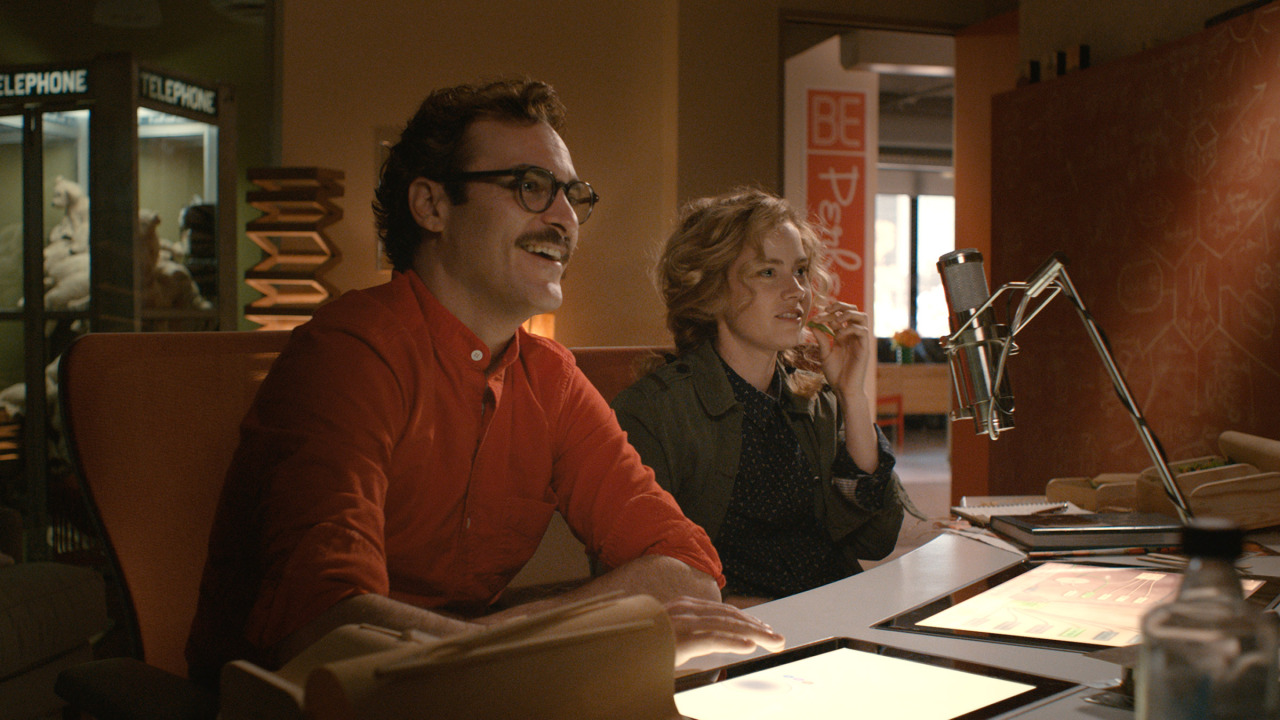
That Joaquin Phoenix is striding in his prime is the least of the excellences that grace any audience savvy enough to visit Mr. Jonze's newest feature, Her, an elegant bastion of the verve behind the dynamic intersection among psychological science, computer science, and philosophy. Mr. Jonze views and portrays a future nuancedly real (and, purposely for counterbalance, quirky; see those tailored waistlines) for us spectators to warmly inhabit yet feel diaphanously separate from. The sun strokes and lens flares that festoon (previous SpyGlass Full winner's; see also here) Hoyte van Hoytema's imagery not simply paint pretty pictures but serve an adamantine purpose, making us spectators subconsciously aware of our own spectatorship, the fourth wall that divides us from the characters and preserves us — almost sterilely — from complete intoxication by the animus on the screen, a brooding counterpart to the manic pixie dream girl (see here) both borrowed from stock – true — but in the hands of Mr. Phoenix a relentlessly thorough and compassionately melancholy gentleman stumbling upon happiness in his small but vivid world. Misters Buchanan and Zumbrunnen's editing slices together the segments of his life with nanoscopic acuity, permitting an invasion of only reflections in any one otherwise linear scene; and the music, composed in parts by Arcade Fire, Karen O., and others, flavors special slices with a bitter sweetness or subtle ecstasy that captures what we know any idyllic dialogue between kindred consciousnesses is wont to be.
Were any voting awards-granting body bolder, notes for all named parties so far would be clear, as well as one for Ms. Johansson, whose voice over is simply perfect: Like light through a prism, she is radiant beyond what anyone I think could expect from an actress put to such a challenge as this always disembodied yet always present character. It is almost troubling how affecting she is, completely absent from screen.
Even what in other films would constitute a flaw, the predictable unidimensionality of the familiar "broken lovers" trope, here marks an asset, advancing the perhaps at one point insolvable tension of the plot to a natural conclusion; Theodore idly spars with his acerbic ex-wife as both evidence to growth and evidence of his growth's limitation: He is human; he must stumble on (taking solace in those familiar with — perhaps all too intimately — that terminal condition, a final thought that begs the perhaps trite but still interesting question, Who is she whom the title of the film names really anyway?, which I like the film leave open with intention here).
Grade: A, rhapsodic.





No comments:
Post a Comment